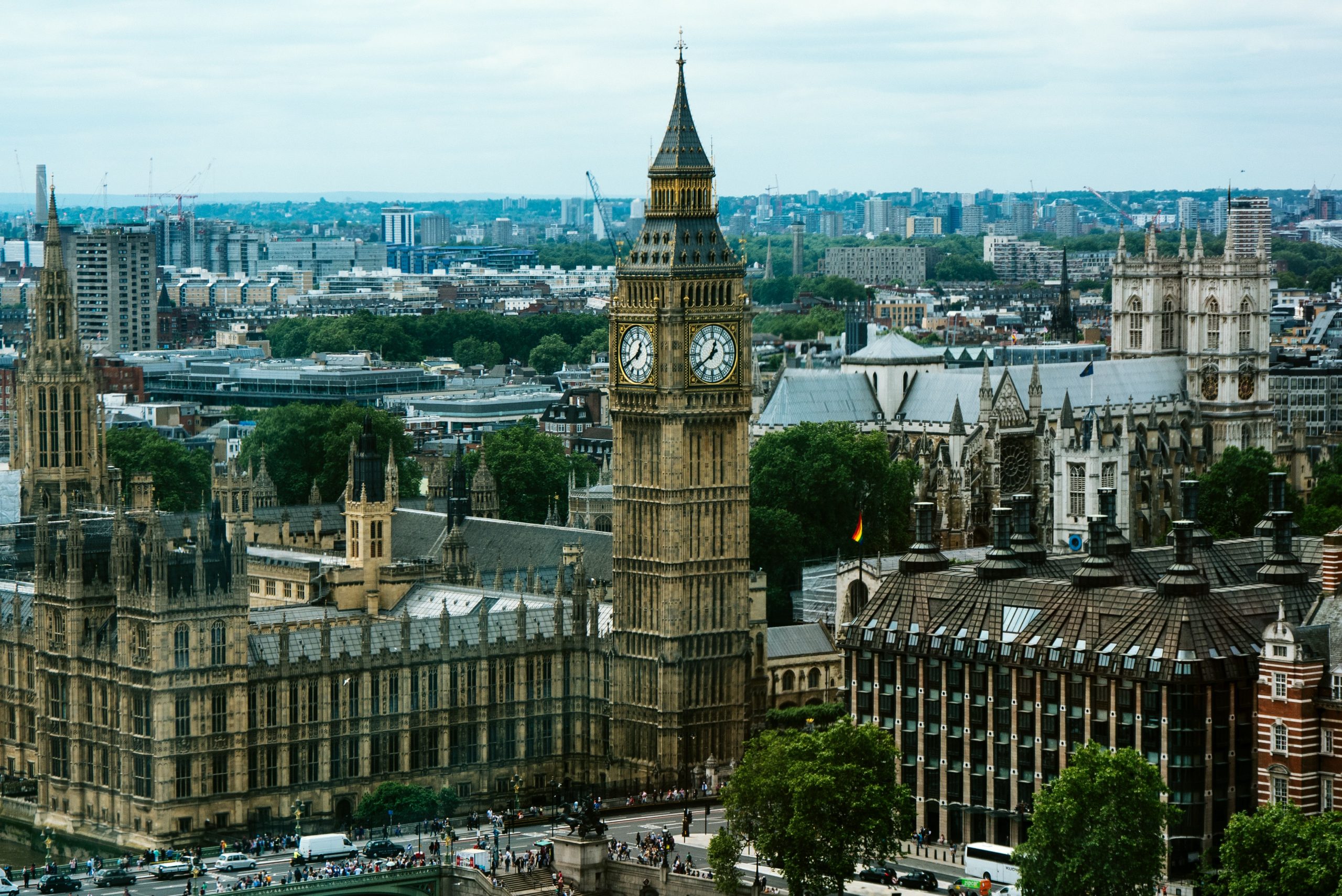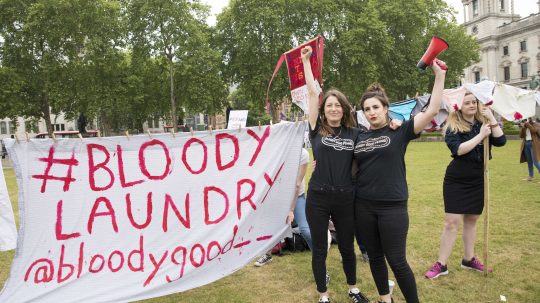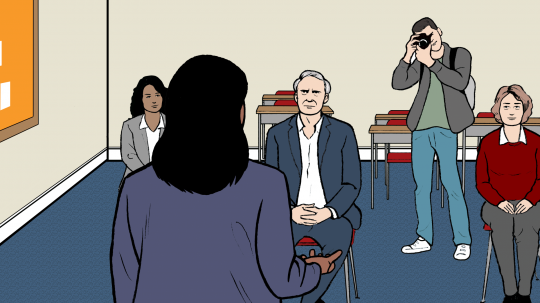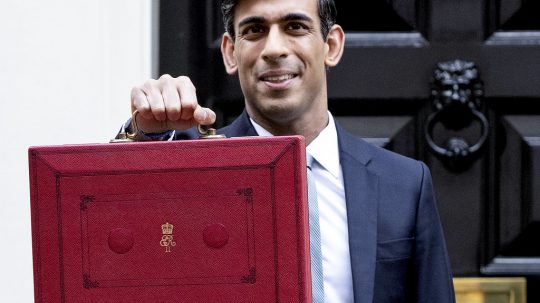Since 2010, the government has cut billions of pounds from the social security system, council budgets, housing subsidies and public services as part of its austerity programme.
With the chancellor Rishi Sunak declaring a new “age of optimism” in his recent budget – signalling the government’s intention to end the era of austerity – Abigail Asabea-Appiah explores the impact austerity has had on people’s rights over the past decade.
What Is Austerity?

Credit: Jamie Street / Unsplash
Between 2007 and 2008, the world was plunged into a global financial crisis, the worst since the Great Depression, resulting in a recession in the UK.
In response, the Conservative and Liberal Democrat coalition government elected in 2010 adopted a programme of austerity in a bid to get rid of its budget deficit, with then-prime minister David Cameron declaring it an “age of austerity”.
“The truth is that the country was living beyond its means,” the then-chancellor George Osborne said of the government’s emergency budget in 2010, which aimed to tackle the UK’s record debts. “Today, we have paid the debts of a failed past, and laid the foundations for a more prosperous future.”
The government’s austerity measures led to more than £30 billion in cuts to social services, welfare support and housing subsidies between 2010 and 2020.
In the face of criticism, Osborne defended the measures, saying they were needed to prevent the country falling back into “the financial danger zone”. However, in 2016, economists from The International Monetary Fund warned that austerity measures may do more harm than good.
Austerity Measures Have Been Linked To Rising Poverty In The UK

Credit: Daria Obymaha / Pexels
After 2010, the government did reduce the budget deficit, which by 2018 had reached its lowest level since before the financial crisis. However, the Covid-19 crisis hit public finances hard, leading to the budget deficit reaching its highest levels since World War II as the pandemic took hold. As of August 2021, this deficit had narrowed to nearly half its mid-pandemic level.
Prior to Covid-19, the government, in a purely economic sense, had some success in reducing the budget deficit. However, critics have argued that the social cost of austerity far outweighed the economic benefits.
Indeed, a look at the impact of some of these measures makes for stark reading:
- In real terms, local authorities in England lost 27 % of their spending power between 2010/11 and 2015/16, with cuts being greater in more deprived areas
- A 2016 report by New Local Government Network and Arts Council England (ACE) found that local authority investment in arts and culture had declined by £236 million between 2010 and 2016, a 17% reduction.
- Public sector employment fell by 16% in England between 2010 and 2020, and by as much as 19% in the north of the country. “This loss of capacity in the North and its concentration in central government has undermined resilience and the ability of the public sector to respond to events like a pandemic or a recession,” reads a June 2020 report by the Institute for Public Policy Research.
How Has Austerity Impacted Human Rights?

Credit: Dan Burton via Unsplash
In terms of human rights implications, anti-austerity campaigners have highlighted a link between these government cuts and rising levels of poverty.
For example, the UK has ratified – and is legally bound by – the provisions of the International Covenant on Economic, Social and Cultural Rights (ICESCR). Article 11 (1) of this treaty recognises that everyone has the right to an adequate standard of living, which includes adequate food, clothing and housing.
However, austerity measures have been repeatedly linked to increased foodbank use and food insecurity, including in one 2021 report by researchers at Imperial College London and the University of Liverpool.
The statistics surrounding food banks are telling: between 2008 and 2018, the Trussell Trust documented a 5,146% increase in the number of emergency food parcels distributed, rising from just under 26,000 annually to more than 1.33 million being handed out, according to Human Rights Watch.
The government’s austerity programme has been linked to worsening poverty and inequality, too. One report by Oxfam UK found that the poorest tenth of the population were “by far the hardest hit” by austerity cuts, with a 38% decrease in their net income between 2010 and 2015.
In a 2021 study, researchers found that cuts to health and social care in the period 2010-2015 were linked to more than 57,000 deaths than would have otherwise been expected.
The UK government’s austerity measures have been widely criticised for their impact on British society.
In a scathing 2019 report, Philip Alston, the United Nations (UN) Special Rapporteur on extreme poverty and human rights, wrote: “Policies of austerity introduced in 2010 continue largely unabated, despite the tragic social consequences. Close to 40% of children are predicted to be living in poverty by 2021.
“Food banks have proliferated; homelessness and rough sleeping have increased greatly; tens of thousands of poor families must live in accommodation far from their schools, jobs and community networks; life expectancy is falling for certain groups; and the legal aid system has been decimated.”
In response, the government defended its measures, with Amber Rudd, work and pensions secretary at the time, saying she planned to lodge a formal complaint with the UN.
Some academics argue that austerity works to excessively punish and exclude the poorest in society, relying on problematic ideas of hostility and scapegoating targeted towards those most disadvantaged and marginalised in society. Henrique Carvalho, Anastasia Chamberlen and Rachel Lewis, academics at the University of Warwick, have argued that:
“Although punitive attitudes towards welfare claimants have been entrenched in political discourse, especially in the Anglo-American context, at least since the 1970s, they have become more predominant and widespread since the 2008 economic crisis.
“Particularly in Europe, the main reaction by affected nation-states has been that of politically and ‘legally entrenching austerity’ as the only possible or credible solution to the ‘crisis’.”
In March 2020, the Covid-19 pandemic placed overwhelming pressures on the UK’s social and healthcare systems, following more than a decade of austerity cuts.
In a recent article for the British Journal of Criminology, these scholars have argued that austerity measures, among other punitive mechanisms, allow disadvantaged people to become ‘targets of hostility’ as they are often blamed for their own financial hardship, with some being made to endure a harsh and stigmatising social security system. They note some examples:
“The Welfare Reform Act 2012 is a prime example of this regime, having introduced measures such as a ‘bedroom tax’ for housing benefit claimants and the implementation of ‘Universal Credit’, a new system designed to replace six separate means-tested benefits with a single benefit, and accompanied by increased conditionality and harsher sanctions.
“The breadth and opacity of the benefits system enable levels of hostility that can often surpass those of the criminal justice system and yet attract less notoriety; for instance, in 2013, the Department for Work and Pensions imposed more benefit sanctions than the number of fines imposed by criminal courts.”
Others have highlighted links between austerity measures and the impact on health. In a 2021 study – the largest of its kind – researchers from the University of York found that cuts to health and social care in the period 2010-2015 were linked to more than 57,000 deaths than would have otherwise been expected.
Austerity And The Covid-19 Pandemic

Credit: Annie Spratt / Unsplash
In March 2020, the Covid-19 pandemic placed overwhelming pressures on the UK’s social and healthcare systems, following more than a decade of austerity cuts.
These austerity measures were linked to weakening the UK’s pandemic response and, in the north of England in particular, worsening inequalities.
Chancellor Rishi Sunak has now pledged a “new age of optimism”, with his Autumn budget promising to increase the minimum wage and to invest £5.9 billion into the NHS to cut waiting times. In the press, these latest government measures have been described as an indicator of the government’s intention to “turn the page on austerity”.
But it remains to be seen how this will play out in the long run. While the government appears to have no immediate plans for a return to an explicit programme of austerity, recent cuts – like the scrapping of a £20-a-week uplift in Universal Credit payments – belie its rhetoric that the UK’s age of austerity is now over.






